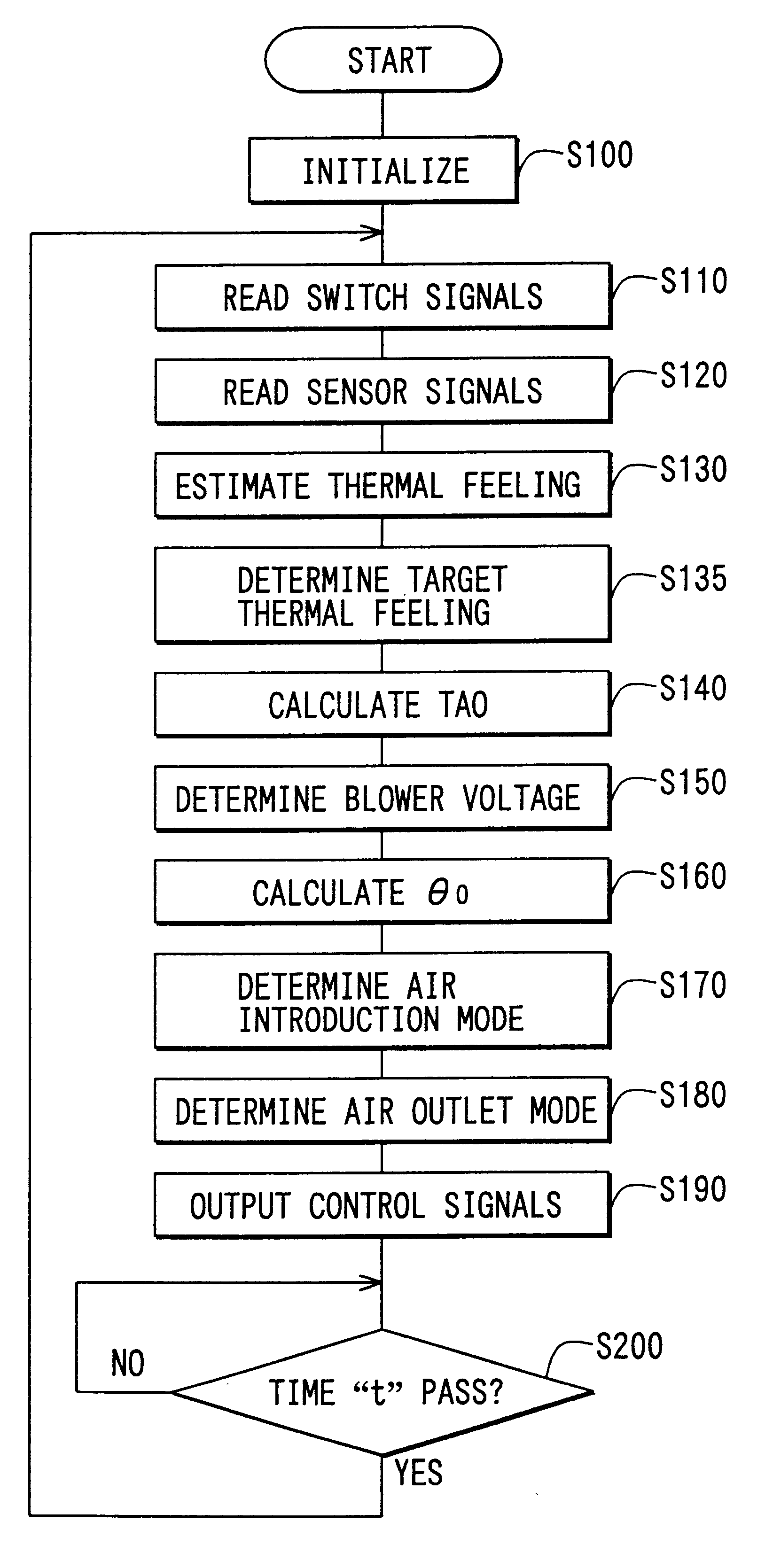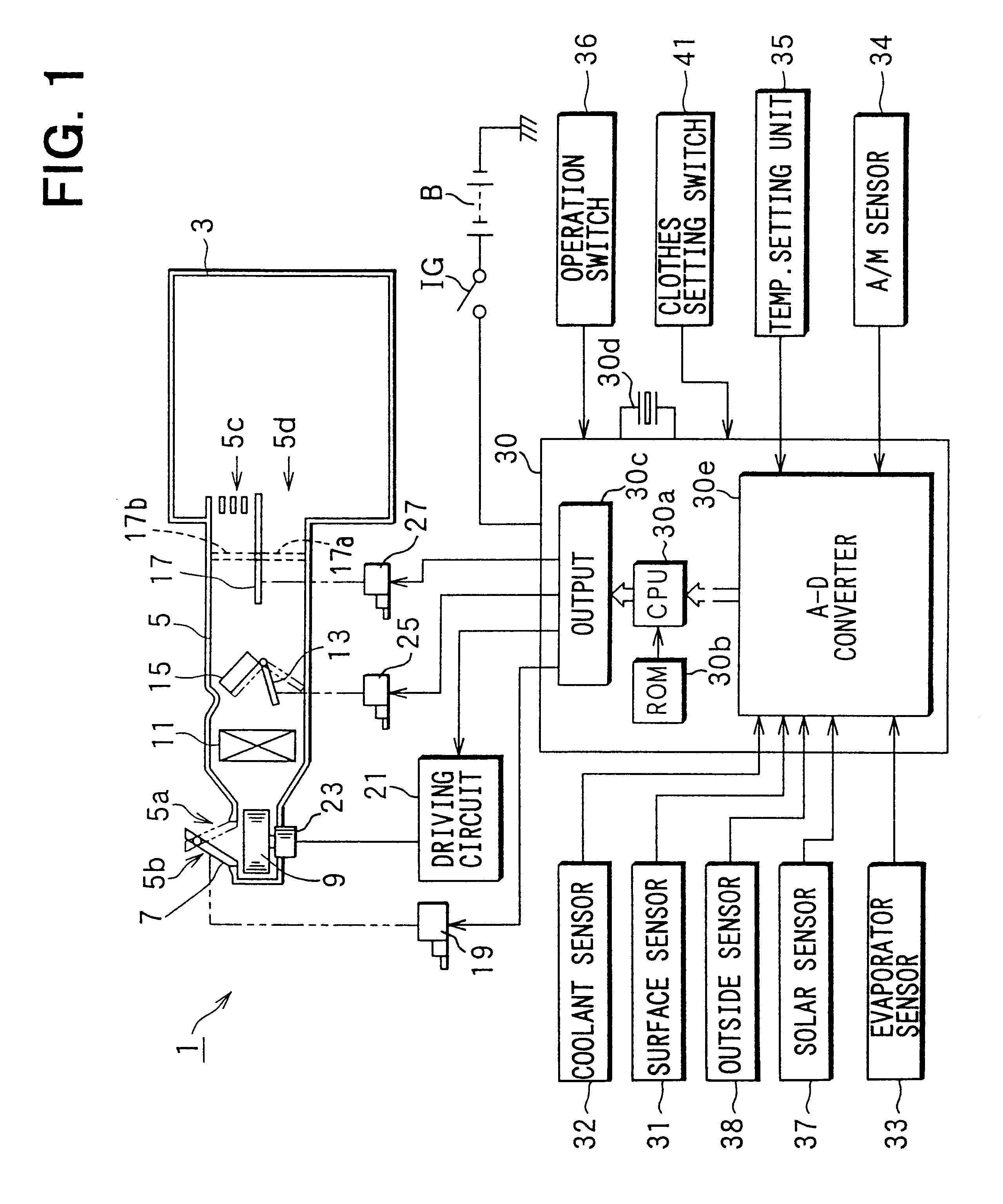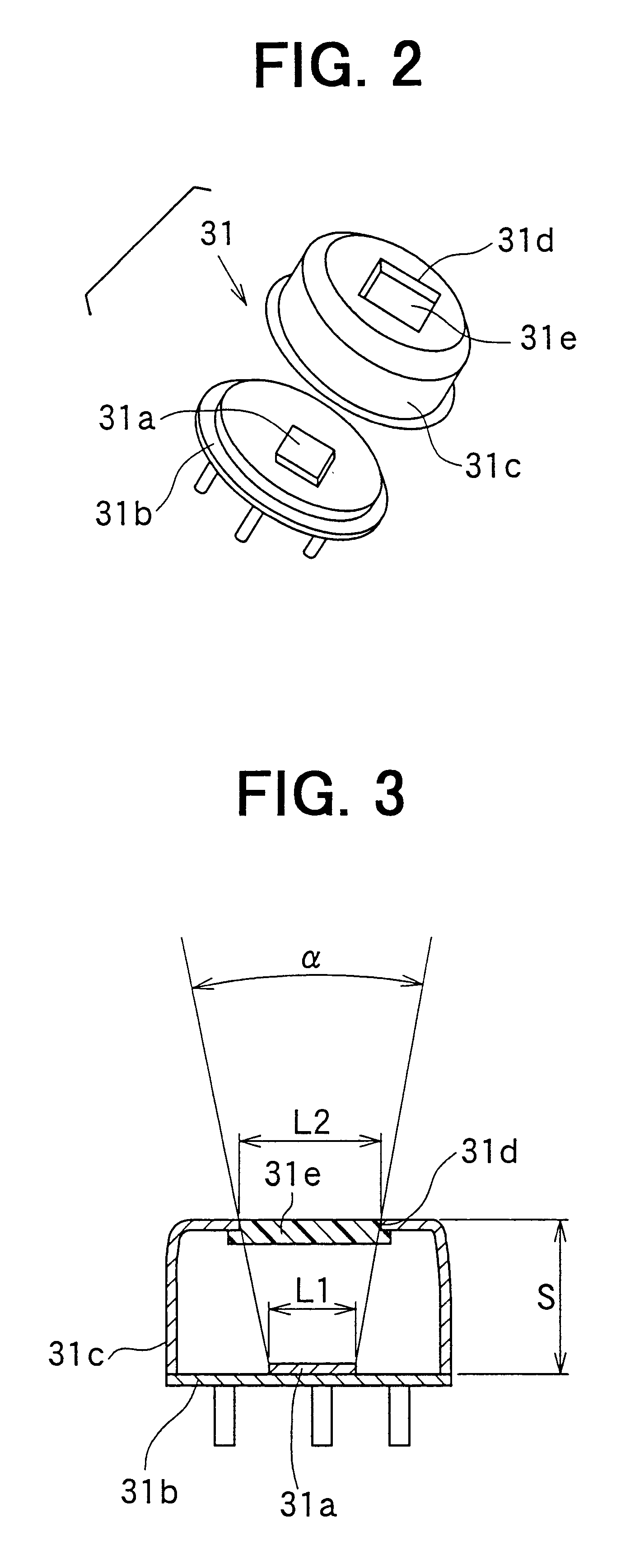Vehicle air conditioner having surface temperature sensor
a surface temperature sensor and air conditioner technology, applied in ventilation systems, valve parts, instruments, etc., can solve the problems of deteriorating air-conditioning feeling of passengers, difficult to always accurately estimate the thermal feeling of passengers, and inability to accurately detect the face skin temperature of passengers
- Summary
- Abstract
- Description
- Claims
- Application Information
AI Technical Summary
Benefits of technology
Problems solved by technology
Method used
Image
Examples
first embodiment
(First Embodiment)
A first preferred embodiment of the present invention will be now described with reference to FIGS. 1-13. An air conditioner 1 shown in FIG. 1 is disposed at a front side in a passenger compartment 3. In an air duct 5 of the air conditioner 1, an inside / outside air switching damper 7, a blower 9, an evaporator (cooling heat exchanger) 11, an air mixing damper 13, a heater core (heating heat exchanger) 15 and a mode switching damper 17 are provided within the air duct 5 in this order from an upstream air side toward a downstream air side.
When the inside / outside air switching damper 7 is switched to a first switching position (shown by the solid line in FIG. 1) by a servomotor 19, outside air outside the passenger compartment 3 is introduced into the air duct 5 from an outside air introduction port 5a. On the other hand, when the inside / outside air switching damper 7 is switched to a second switching position (shown by the chain line in FIG. 1), air (inside air) insi...
second embodiment
(Second Embodiment)
In the above-described first embodiment, clothes amount information is inputted by the passenger M using the clothes amount setting switch 41, and the clothes-amount correction coefficient Cclo is obtained from the clothes amount information. In the second embodiment of the present invention, however, a clothes-amount correction coefficient Cclo' is obtained from the outside air temperature Tam.
In the second embodiment of the present invention, the clothes amount setting switch 41 described in the first embodiment is eliminated, and step S130 of the first embodiment is changed to step S130A shown in FIG. 14. The other parts in the second embodiment are identical to those in the first embodiment, respectively.
In the second embodiment, the clothes of the passenger M is set to become lighter as the outside air temperature Tam becomes higher, and the clothes amount correction coefficient Cclo' is obtained from the outside air temperature Tam as shown at step S130A in ...
third embodiment
(Third Embodiment)
The third embodiment of the present invention will be now described with reference to FIGS. 15-17. In the above-described first embodiment of the present invention, preference temperature of the passenger is set using the temperature setting unit 35. However, in the third embodiment, the preference thermal feeling of the passenger (thermal feeling information) is set using a thermal feeling setting unit 43 shown in FIGS. 15, 16. According to this change in the third embodiment, step S135 in the first embodiment is changed to step S135A shown in FIG. 17. The other parts in the third embodiment are identical to those in the first embodiment, respectively.
By using the thermal feeling setting unit 43 of the third embodiment, the thermal feeling can be set at plural thermal feeling steps from a cold feeling step to a hot feeling step. As shown in FIG. 17, a set thermal-feeling correction value Sset' is obtained in accordance with the preference thermal feeling set by th...
PUM
 Login to View More
Login to View More Abstract
Description
Claims
Application Information
 Login to View More
Login to View More - R&D
- Intellectual Property
- Life Sciences
- Materials
- Tech Scout
- Unparalleled Data Quality
- Higher Quality Content
- 60% Fewer Hallucinations
Browse by: Latest US Patents, China's latest patents, Technical Efficacy Thesaurus, Application Domain, Technology Topic, Popular Technical Reports.
© 2025 PatSnap. All rights reserved.Legal|Privacy policy|Modern Slavery Act Transparency Statement|Sitemap|About US| Contact US: help@patsnap.com



